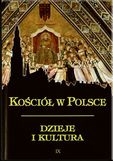U źródeł wczesnochrześcijańskiego tytłu “męczennik”
At the Roots of the Early Christian Title Martyr
Author(s): Piotr SzczurSubject(s): History
Published by: Katolicki Uniwersytet Lubelski Jana Pawła II - Wydział Teologii
Keywords: terms and roots or martyrdom; history of martyrdom in the Catholic Church; martyrdom of missionaries; repression of the Catholic Church during the Communism regime
Summary/Abstract: This paper tries to establish the original meaning of the early Christian title martyr. Analising the source texts allowed to draw several important conclusions: 1) Christian writers of the first two centuries give the term martyr (martur…a) and its derivatives denotations connected mainly with the widely understood Christian testifying- especially with admitting to being a Christian; 2) In their understanding, it was possible to become a martyr (martyr) for that Christian who, during a court trial and in the presence of a judge, admitted to being a Christian, regardless of being tortured or killed. Death was treated as “completion” of martyrdom; 3) For the followers of Christ admitting to being a Christian could have been a cause of great suffering because in that period of time the term Christian had a pejorative meaning; 4) In the course of time, probably around the middle of the 3rd century, they started to differentiate between martyrs and confessors. Those who died for their faith were called martyrs, and those who managed to survive in spite of having been sentenced to tortures, hard work in mines and quarries or even death were called confessors; 5) It seems that contemporary literature shows an inclination to define the difference between martyrs and confessors too early. In the consequence, the title martyr is given only to those who lost their lives for the faith.
Journal: Kościół w Polsce. Dzieje i kultura
- Issue Year: 2011
- Issue No: 10
- Page Range: 23-40
- Page Count: 18
- Language: Polish

